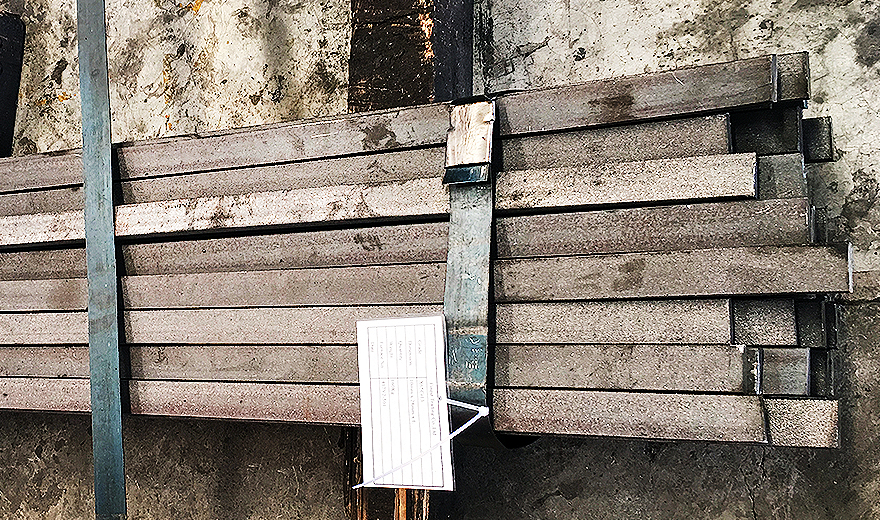Inconel 625, UNS N0625, 2.4668, Alloy 625, AMS 5666

INCONEL Ni-Cr Alloy 625, UNS N06625, 2.4856) is used for its high strength, excellent fabricability, and outstanding corrosion resistance. Service temperatures range from cryogenic to 1800°F (982°C). Strength of INCONEL alloy 625 is derived from the stiffening effect of molybdenum and niobium on its nickel-chromium matrix; thus precipitationhardening treatments are not required. This combination of elements also is responsible for superior resistance to a wide range of corrosive environments of unusual severity as well as to high-temperature effects such as oxidation and carburization. The properties of INCONEL alloy 625 that make it an excellent choice for sea-water applications are freedom from local attack (pitting and crevice corrosion), high corrosion-fatigue strength, high tensile strength, and resistance to chloride-ion stress-corrosion cracking. It is used as wire rope for mooring cables, propeller blades for motor patrol gunboats, submarine auxiliary propulsion motors, submarine quickdisconnect fittings, exhaust ducts for Navy utility boats, sheathing for undersea communication cables, submarine transducer controls, and steam-line bellows. Potential applications are springs, seals, bellows for submerged controls, electrical cable connectors, fasteners, flexure devices, and oceanographic instrument components. High tensile, creep, and rupture strength; outstanding fatigue and thermal-fatigue strength; oxidation resistance; and excellent weldability and brazeability are the properties of INCONEL alloy 625 that make it interesting to the aerospace field. It is being used in such applications as aircraft ducting systems, engine exhaust systems, thrust-reverser systems, resistancewelded honeycomb structures for housing engine controls, fuel and hydraulic line tubing, spray bars, bellows, turbine shroud rings, and heat-exchanger tubing in environmental control systems. It is also suitable for combustion system transition liners, turbine seals, compressor vanes, and thrust-chamber tubing for rocket The outstanding and versatile corrosion resistance of INCONEL alloy 625 under a wide range of temperatures and pressures is a primary reason for its wide acceptance in the chemical processing field. Because of its ease of fabrication, it is made into a variety of components for plant equipment. Its high strength enables it to be used, for example, in thinner-walled vessels or tubing than possible with other materials, thus improving heat transfer and saving weight. Some applications requiring the combination of strength and corrosion resistance offered by INCONEL alloy 625 are bubble caps, tubing, reaction vessels, distillation columns, heat exchangers, transfer piping, and valves. In the nuclear field, INCONEL alloy 625 may be used for reactor-core and control-rod components in nuclear water reactors. The material can be selected because of its high strength, excellent uniform corrosion resistance, resistance to stress cracking and excellent pitting resistance in 500°-600°F (260-316°C) water. Alloy 625 is also being considered in advanced reactor concepts because of its high allowable design strength at elevated temperatures, especially between 1200°-1400°F (649-760°C).
Chemical Composition
| Grade | Chemical composition WT % | |||||||||||||
|---|---|---|---|---|---|---|---|---|---|---|---|---|---|---|
| C | Si | Mn | P | S | Cr | Ni | Mo | Al | Co | Ti | B | Fe | Nb+Ta | |
| Alloy 625 | max 0.1 | max 0.5 | max 0.5 | max 0.015 | max 0.015 | 20.0-23.0 | min 58 | 8.0-10 | max 0.4 | max 1.0 | max 0.4 | max 5.0 | 3.15-4.15 | |
Mechanical Properties
- ROD, BAR, PLATE
- As-Rolled
- Tensile Strength: 120-160 ksi / 827-1103 MPa
- Yield Strength (0.2% Offset): 60-110 ksi / 414-758 MPa
- Elongation: 60-30%
- Reduction Of Area: 40-60%
- Hardness, Brinell: 175-240
- Annealed
- Tensile Strength: 120-150 ksi / 827-1034 MPa
- Yield Strength (0.2% Offset): 60-95 ksi / 414-655 MPa
- Elongation: 60-30%
- Reduction Of Area: 40-60%
- Hardness, Brinell: 145-220
- Solution-Treated
- Tensile Strength: 105-130 ksi / 724-896 MPa
- Yield Strength (0.2% Offset): 42-60 ksi / 290-414 MPa
- Elongation: 60-30%
- Reduction Of Area: 60-90%
- Hardness, Brinell: 116-194
- SHEET and STRIP
- Annealed
- Tensile Strength: 120-150 ksi / 827-1034 MPa
- Yield Strength (0.2% Offset): 60-90 ksi / 414-621 MPa
- Elongation: 30-55%
- Reduction Of Area: -
- Hardness, Brinell: 145-240
- TUBE and PIPE, COLD-DRAWN
- Annealed
- Tensile Strength: 120-140 ksi / 827-965 MPa
- Yield Strength (0.2% Offset): 60-75 ksi / 414-517 MPa
- Elongation: 30-55%
- Reduction Of Area: -
- Hardness, Brinell: -
- Solution Treated
- Tensile Strength: 100-120 ksi / 689-827 MPa
- Yield Strength (0.2% Offset): 40-60 ksi / 276-414 MPa
- Elongation: 40-60%
- Reduction Of Area: -
- Hardness, Brinell: -
Physical Properties
- Density
- lb/cu in: 0.305
- gram/cc: 8.44
- Melting Range: 2350-2460°F / 1290-1350°C
- Specific Heata , Btu/lb°F (J/kg°C)
- 0°F (-18°C), 0.096 (402)
- 70°F (21°), 0.098 (410)
- 200°F (93°C), 0.102 (427)
- 400°F (204°C), 0.109 (456)
- 600°F (316°C), 0.115 (481)
- 800°F (427°C), 0.122 (511)
- 1000°F (538°C), 0.128 (536)
- 1200°F (649°C), 0.135 (565)
- 1400°F (760°C), 0.141 (590)
- 1600°F (871°C), 0.148 (620)
- 1800°F (982°C), 0.154 (645)
- 2000°F (1093°C), 0.160 (670)
- Permeability at 200 Oersted (15.9 kA/m), 1.0006
- Curie Temperature, <-320°F / -196°C
